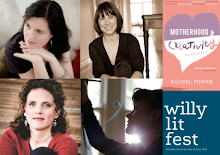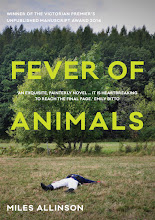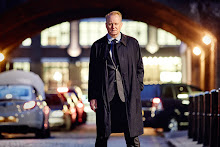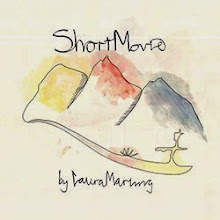
I have recently discovered that I've been keeping some of my friends amused by the fact that I can now talk football.
I have to admit, on this matter, I have been a bit surprised by my own capacity to adapt. But what do you do when you have a seven-year-old who is so utterly obsessed with football (in our case, AFL, being Melbourne), your only hope of a decent conversation is to start talking shop?
My son is now a walking encyclopaedia of footy scores. Perhaps he’ll hit 13 and we’ll suddenly be plunged into the ins and outs of his favourite music (bring it on!). But for now, it’s all “So, Mum, who is your
fourth favourite footy player?”
May as well have an answer.
Even more amazing (to myself and others), is that I have now completed my first Auskick training certificate. Yes, I actually know how to put spin on the ball. It was that or stand around shivering on a frost-encrusted oval at 9am on Saturday morning. (Goodbye weekends…)
I have to admit, this Auskick set-up is impressive. I understood what one of the other mothers meant when she said: "We could learn something here, Rachel. Us lefties — if we were as well organised as Auskick we'd have kicked out Kennett two years earlier."
When our son first started showing an interest, my partner warned me about mothers like me. "You'll have to hang out with those footy mums...". "Oh, God, you're right," I thought. "Shit, no."
Now look at me. There is that simple thing that, as a mother, I want to be enthusiastic about whatever my kids are enthusiastic about — to genuinely engage with their interests and support their endeavours. It's just that when I thought about having babies, I stupidly envisaged that they'd be a bit like me — bookish and introverted.
Ha, ha, parenthood 101 — your kids will be their own going concern.
At this stage my son is too young too be aware of the suspect culture that exists on (and all too often off) the field. But it doesn’t take much to know that aggression is inherent to the game — exactly the thing that has always made me rail against it.
I can admire the athleticism involved, but what of the masculine (read, sexist) culture so evident in a sport like AFL? How do I counteract this at home when it is so much a part of the scene?
We don’t have a TV, thankfully, so I don’t have to deal with my son coming across programs like the Footy Show (so aptly described by the fabulous
Catherine Deveny as hosted by pigs in suits for pigs in suits).
And fortunately my son has chosen to support a team that is on a serious losing streak, which not only makes me a tad more sympathetic but, for him, has enforced some useful lessons in humility.
The other great thing about my son’s age group is that there are still girls doing the Auskick training alongside the boys and this so far goes unquestioned. I am full of admiration for those fearless girls in their pink trackie-pants who can cut it with the best of them. What a shame all their visible role models have to be male.
In Melbourne, being part of the footy culture is like joining a club ('scuse the sort-of pun) — one that almost everyone else has already signed up to but to which I was almost completely oblivious, before now. Everywhere we go, if Griffin has his footy gear on (which is most of the time), people will tussle his hair and mumble: “Go, tiges!” (For those in the know, he is a
Richmond Tigers fan, if that wasn’t already clear.) I can find this ridiculously endearing.
Right now I feel torn between wanting to support my son in his genuine love of the sport — which to him is about physical striving and personal achievement — and my concerns that the dominant culture in AFL is one that is in strong part to blame for the conduct of so many of its players. Even if it is working to change its ethos.
Plenty of women do love footy, I know. Funnily enough, on the fan front, AFL seems a pretty egalitarian sport. But just like I think it’s a form of denial to say that women’s magazines are just a bit of fun that don’t impact on women’s self-esteem, I think footy culture has problematic implications for our broader culture.
Anyone else out there confronting how to raise a son who loves footy
and respects women? It was not a challenge I was expecting...


















































